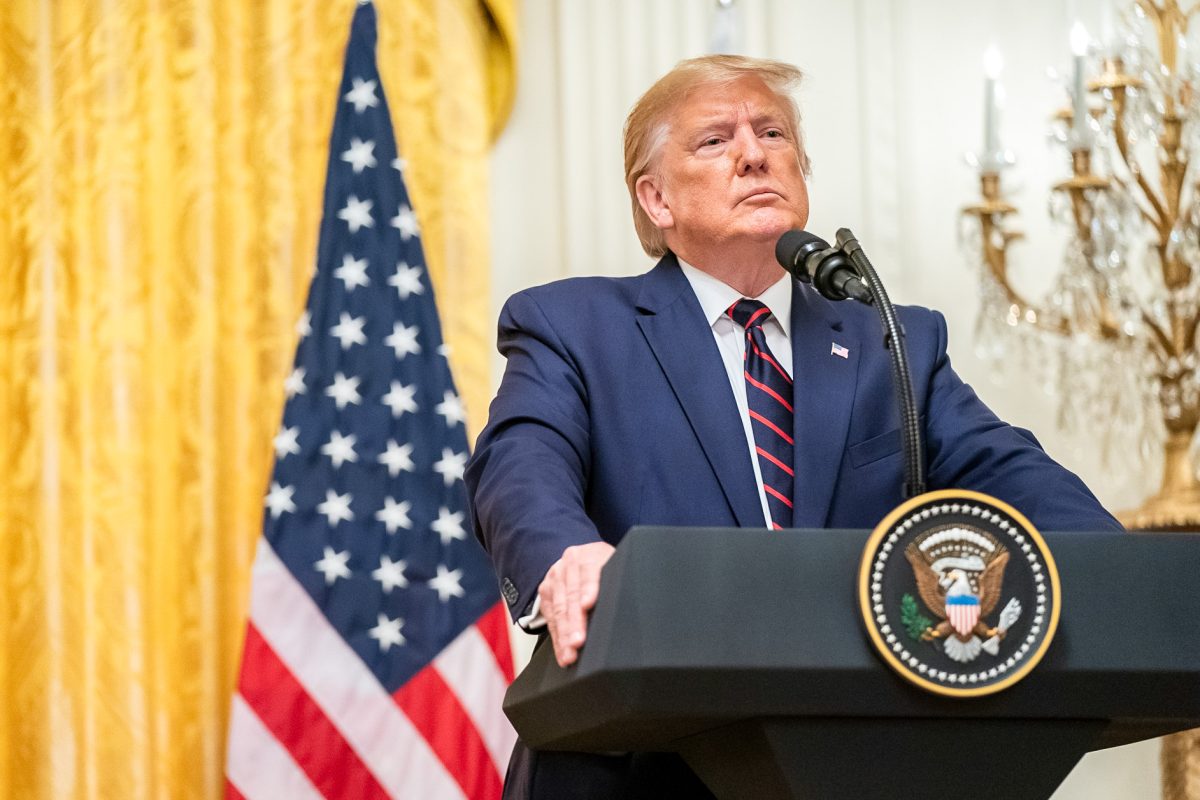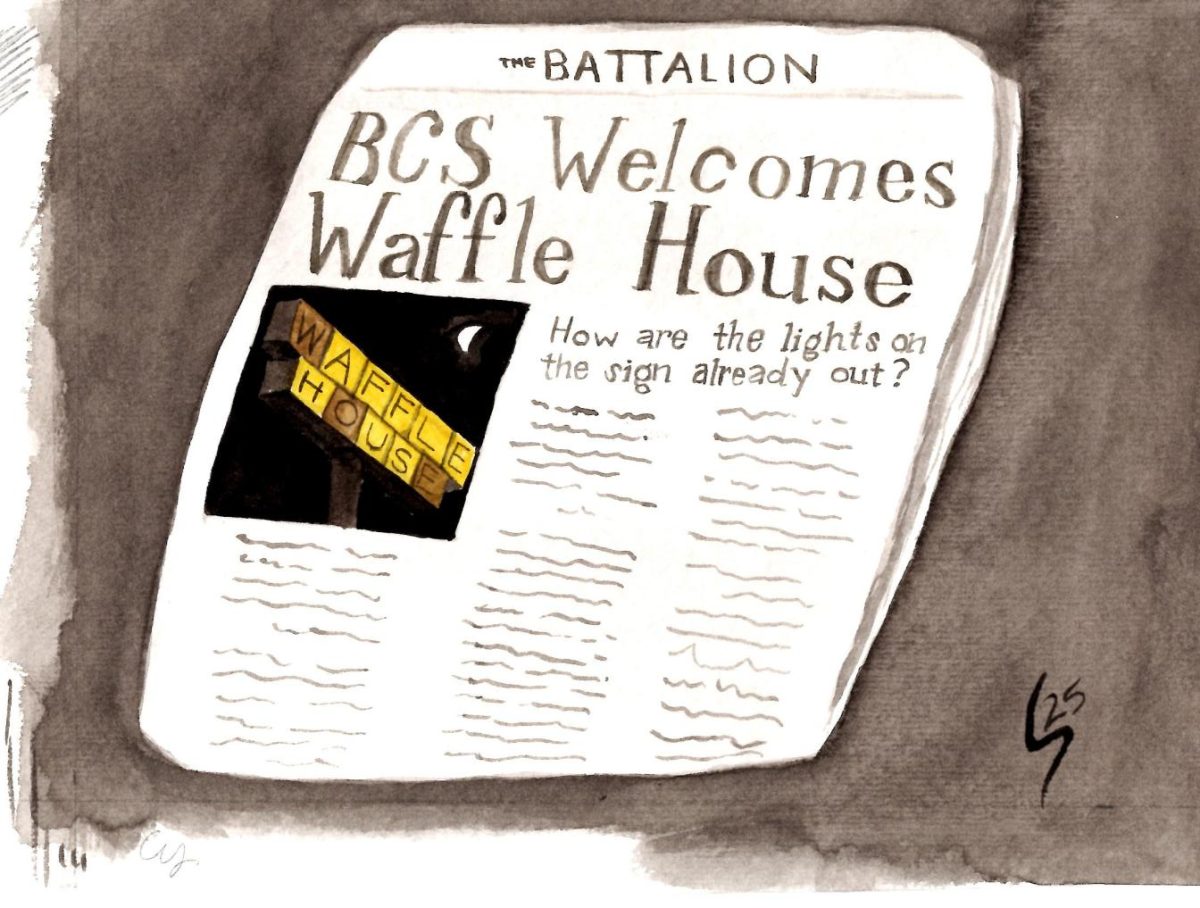Democrats. What are we doing? Democrats. STOP!
At the time of this column’s publication, two premises seem unassailable. First, that President Trump abused his powers — and, by definition, the American people — when he pressured President Zelensky to investigate Joe Biden’s son Hunter. Second, that in committing this abuse, President Trump broke no laws. From these two premises we can conclude — if one hasn’t reached the judgement already — that Donald Trump must be removed from office. The conclusion, in turn, makes way for the far denser political question of when he should be removed and by whom.
The more excitable among us say that with the whistleblower account and the summation of Trump’s discussion with Zelesnky, we presently have enough information for impeachment. However, we Democrats should be careful how far we stick our necks out. Much like the Mueller probe, our case is not as strong as many think it is.
Article II, Section 4 of the Constitution reads, “The President, Vice President and all civil officers of the United States, shall be removed from office on impeachment for, and conviction of, treason, bribery, or other high crimes and misdemeanors.” A textualist reading — in which we analyze the plain text of the Section — suggests that Congress can only remove a president for explicitly illegal behaviors. Unfortunately for Democrats, the president’s conduct does not meet this standard, as he is perfectly entitled to ask for foreign assistance in a domestic investigation. Additionally, there is no exception if the subject of the probe is a political opponent or if the inquiry would take place during an election year.
An originalist reading of Article II, Section 4 — one where we analyze both the words and the intent behind them — is more complicated. Democrats, justifiably eager to get rid of Trump, are holding fast to what Alexander Hamilton said in Federalist 65, that “The subjects of [impeachment’s] jurisdiction are those offenses which proceed from the misconduct of public men, or, in other words, from the abuse or violation of some public trust. They are of a nature which may with peculiar propriety be denominated POLITICAL, as they relate chiefly to injuries done immediately to the society itself.”
“Political,” Democrats argue, is the key word. However, just because impeachment is not, strictly speaking, a legal matter does not mean impeachment is a free-for-all — there were other Founders (some more closely tied to the drafting of the Constitution) who had different, more nuanced views.
The Notes of James Madison, taken during the Constitutional Convention in Philadelphia in 1787, provides compelling context for how to interpret Article II, Section 4. It does so in the form of a recorded exchange between Colonel George Mason, Madison and Gouverneur Morris.
Mason asked the group: “Why is the provision [for impeachment] restrained to Treason and bribery only? Treason as defined in the Constitution will not reach many great and dangerous offences … Attempts to subvert the Constitution may not be Treason as above defined.” Mason then moved to add “maladministration” to the list of impeachable offenses.
Madison answered: “So vague a term will be the equivalent to a tenure during pleasure of the Senate.” Morris then chimed in: “it will not be put in force and can do no harm. An election of every four years will prevent maladministration.” Mason ultimately withdrew his motion and substituted the phrase “high crimes and misdemeanors against the State” instead.
Therefore, while those who argue that impeachment is a purely political process are technically correct, they are wrong to imply that this means the House and Senate can — or at the very least, should act upon their ability to — remove the president whenever they please. Somewhere between “maladministration” and the hardline of legality is the standard for impeachment. The strongly legalistic language that made it into the Constitution’s final draft implies that the standard for impeachment is far closer to the latter than the former.
What, then, are we to make of the president’s conduct on the issue of Ukraine? It is telling that none of the president’s political opponents has alleged that the president has done anything close to illegal. The seven freshman Democrats who wrote a column for the Washington Post, though justifiably incensed, did not allege unlawful behavior. Even the whistleblower, so confident about the events for which he or she “was not a direct witness,” hedged their assertion, saying merely that they were “deeply concerned that the actions described [in the account] constitute ‘a serious or flagrant problem, abuse, or violation of law or Executive Order.’” Joe Biden daren’t. To do so would be to interrupt his bragging about how he and President Obama got Ukraine to clamp down on its corruption in the first place: by withholding a $1 billion loan guarantee.
In politics one must walk softly and carry a big stick. Sometimes the big stick is a nuclear weapon; sometimes it’s $1 billion. The slippery nature of politics is why what Donald Trump did only broke an unwritten law rather than a written one. Unwritten laws — such as norms and standards of behavior— exist not merely because enumerating the full list of illegal actions is impractical, but also because the distinction between illicit and licit conduct is almost impossible to determine. Yes, Trump pressured the Ukranian government to investigate a political opponent during an election year — and yes, the president had previously indicated his willingness to accept foreign assistance during an election — but at its core, the demand’s appropriateness hinges upon whether one believes there is something worth investigating in the Biden household. It is a political question — “so vague a term” — one whose answer some will dismiss with the same ease with which others propose it.
Should the impeachment inquiry find new information, we can reevaluate. However, at the moment, Democrats must remember that what we have so far is a non-transcript, brought to our attention by someone who was not present, detailing the president doing something he clearly has the power to do. On the political spectrum of possibly impeachable acts, Trump’s conduct — much like The Muslim Ban and the detention of immigrant children before it — falls closer to maladministration than it does illegality. Per Morris’ suggestion, we should, therefore, handle Trump’s malfeasance in November of next year.
What to make of Article II, Section 4
October 8, 2019
0
Donate to The Battalion
$70
$2500
Contributed
Our Goal
Your donation will support the student journalists of Texas A&M University - College Station. Your contribution will allow us to purchase equipment and cover our annual website hosting costs, in addition to paying freelance staffers for their work, travel costs for coverage and more!










